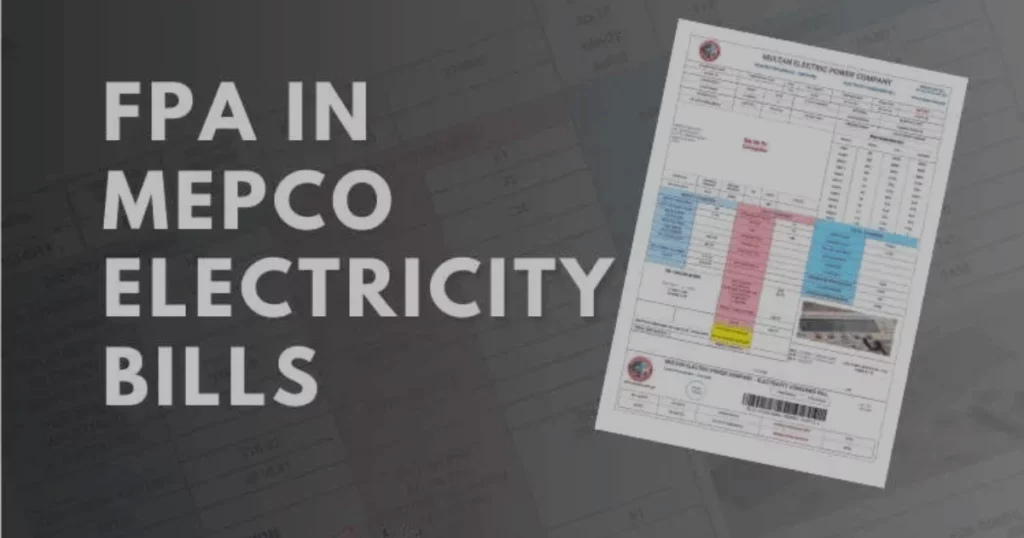FPA in Electricity Bills
The Lahore High Court recently gave prominence to the controversy encircling FPA in electricity bills in Pakistan. Court orders that it should not be included in electricity bills because it is not fully constituted under the Nepra Act. However, different distribution companies included this tax as usual in electricity bills, like Mepco, Lesco, Fesco, Iesco, Gepco, Kepco, and Qesco.
Power Companies generate electricity through Crude oil. According to the Nepra notification, FPA is based on the difference between a month’s actual fuel charges component for a month and the reference fuel charges component. If the variation is positive, then the average amount is added to the consumer’s bill, and In the negative variation, the consumer is given a benefit.
What is FPA in Electricity Bills
Like other distribution companies, FPA (Fuel Price Adjustment) is a regular part of mepco bills nowadays. People usually pay for it; it doesn’t matter what. When discussing fuel price adjustment (FPA) in electricity bills, especially in mepco bills, it is critical to point out its effective nature. Unlike fixed charges, FPA varies based on components such as fuel cost, mix of generation sources, and the amount of electricity consumed by the consumer. This fluctuation directly impacts the rate of FPA, causing it to be high or low correspondingly.

These variations of FPA in mepco electricity bills are retained by the National Electric Power Regulatory Authority, known as NEPRA, especially in fuel cost and generation mix. Electric generation companies like MEPCO applied FPA costs and other charges to the consumer’s bills. These charges are divided into two categories: the Govt of Pakistan pays one, and the other the company is responsible for the production and distribution of electricity in that area.
In time, decisions to make dams or produce cheap electricity for a developing country like Pakistan can make a big difference in tariff rates and electricity production. However, it is necessary to overcome the issue of expensive electricity production by IPPs. Expensive electricity production causes high FPA charges on consumers in the electricity bills.
How to Calculate FPA in Electricity
FPA in electricity bills, is based on the difference between a month’s fuel charges and the reference fuel charges component. If the variation is positive, then the average amount is added to the consumer’s bill, and In the negative variation, the consumer is given a benefit. Taxes are not fixed in the electricity bills; they vary with the variation of different components, like variations in the price of crude oil and generation mix.
FPA in electricity or mepco bills differ for commercial and residential areas, corresponding to their consumption. Add electricity duty and 17 % GST to the total FPA tax rate; then, you will get the result of the FPA calculation.
Conclusion
FPA, fuel price adjustment, is a controversial tax that the Nepra opposes. Lahore High Court has declared it an illegal amount that must be excluded from all electricity bills. Govt must increase its cheap power resources to overcome the demand and supply gap and low tariff rates.
